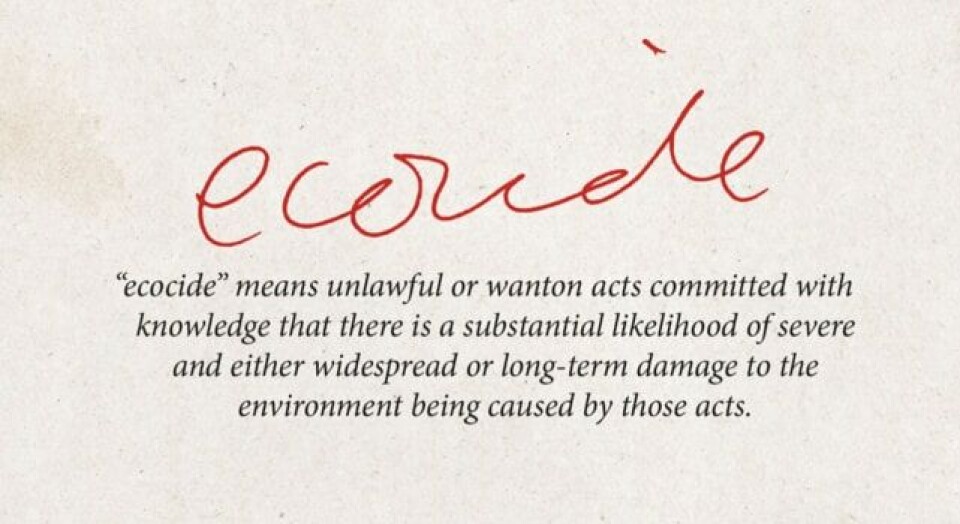The proposal for a new legal definition of “ecocide” was announced on June 22, by a panel chaired jointly by Dior Fall Sow, a former Senegalese jurist and legal scholar and Philippe Sands QC, a Professor of Laws at University College London.
Sow, one of Senegal’s first female prosecutors, also served as legal advisor to the International Criminal Tribunal for Rwanda and consultant to the International Criminal Court (ICC)
Sands said the new proposal on ecocide could conceivably be used to hold corporate and State leaders and officials accountable for acts of “wanton” and “long term” damage to the Earth’s life-support systems – potentially including the future construction of new coal-fired power stations, large-scale deforestation or major oil spills and pollution.
The panel is hoping that its proposal captures sufficient pubic and political support to catalyze at least 82 governments into amending the Rome Statute of the ICC, which currently has jurisdiction to prosecute four crimes: genocide; crimes against humanity; war crimes and the crime of aggression.
The Rome Statute of the ICC was adopted at a diplomatic conference in Rome on 1998 and entered into force in 2002 and currently has 123 state parties.
The independent “ecocide panel”, commissioned by the Stop Ecocide Foundation with support from Swedish parliamentarians, spent six months crafting a legal definition of the proposed crime that it hopes can be adopted by a two-thirds majority of signatories to the Rome Statute (82 of the 123 State signatories, which currently exclude the United States, China and Russia)
The panel - which includes a former ICC judge and former ICC prosecutor - has no international legal status, but nevertheless hopes to move its proposal from a mere catchphrase to a legally enforceable global instrument if sufficient political support can be mustered.
The term “ecocide” was inspired by the American plant biologist Arthur Galston, whose early studies into the defoliant effect of plant hormones gave rise to the military use of “Agent Orange” in the Vietnam War. Dismayed by the perversion of his scientific endeavours for use in biological warfare, Galston later coined the word ecocide in 1970 to describe the environmental harm inflicted upon South Vietnam by defoliation and bombing.
Since then, the concept of declaring ecocide a global crime has been supported by Catholic leader Pope Francis and some member states of the ICC and gained further traction via the Stop Ecocide Foundation, co-founded in 2017 by Scottish barrister Polly Higgins and the foundation’s current executive director, Jojo Mehta.
Panelist Alex Whiting, a former ICC prosecutions coordinator and Harvard Law School professor, said: "Defining the crime is a first step on a path of discussion, debate, and, one day, ratification. The hope is that the process will energise states to think about how to use international criminal law to target the most grave environmental crimes.”
For more information on the plan click here
To join Africa Legal's mailing list please click here

